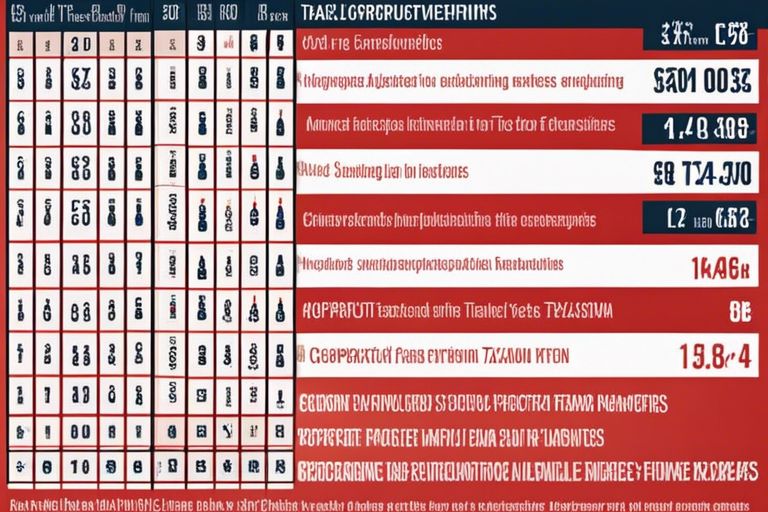Malta’s Corporate Taxation and Finance

Malta boasts a unique corporate tax system that has attracted many businesses to its shores. In order to fully comprehend how corporate taxation and finance work in this Mediterranean island nation, it is important to examine into the intricate details of its tax laws and financial regulations. This blog post aims to provide a comprehensive overview of Malta’s corporate taxation and finance landscape, offering insight into the benefits and challenges of conducting business in this thriving economic hub.
Overview of Corporate Taxation in Malta
Standard Corporate Tax Rate
For companies operating in Malta, the standard corporate tax rate is 35%. However, Malta offers an imputation system where shareholders can benefit from a tax refund of up to 6/7ths of the tax paid by the company, effectively reducing the tax burden to 5% or even less in some cases.
Tax Credits and Incentives Available
On top of the favorable tax refund system, Malta provides various tax credits and incentives to encourage business growth and foreign investment. These incentives include tax credits for research and development, film production, and double taxation relief to avoid being taxed twice on the same income in different jurisdictions.
Available tax credits and incentives contribute to making Malta an attractive destination for businesses looking to establish themselves in the European Union. The strategic location, stable political climate, and pro-business policies further enhance Malta’s appeal as an ideal hub for international business operations.
Key Features of Malta's Tax System
It is crucial to understand the key features of Malta’s tax system to grasp how it benefits businesses. Some of the crucial components of Malta’s tax system include:
- Full Imputation System
- Participation Exemption
- Double Taxation Treaties
- Advance Revenue Rulings
- Group Relief
After analyzing these features, it becomes evident why Malta is an attractive destination for businesses looking to optimize their tax liabilities.
Full Imputation System
One of the key components of Malta’s tax system is the Full Imputation System, which allows for the elimination of economic double taxation. This system ensures that when a company distributes dividends, shareholders receive a credit for the tax already paid by the company.
Participation Exemption
The Participation Exemption is another crucial feature of Malta’s tax system, granting exemptions on capital gains and dividends received from qualifying subsidiaries. This system aims to promote cross-border investments and encourage companies to establish their headquarters in Malta.
Financing Opportunities for Businesses in Malta
Bank Financing Options
One popular option for businesses in Malta to secure financing is through bank loans. Local and international banks operating in Malta offer various loan products tailored to meet the needs of businesses. These loans can provide the necessary capital for expansion, working capital, or other investment needs.
Investment Incentives and Support Schemes
Financing opportunities go beyond traditional bank loans in Malta. The government also provides investment incentives and support schemes to attract and support businesses. These schemes may include grants, tax incentives, and other financial assistance to help businesses grow and thrive in Malta’s competitive market.
Schemes such as the Business Enhance ERDF Grant Schemes, which offer financial support to businesses for investments in various sectors, play a crucial role in encouraging investment and innovation. Additionally, Malta Enterprise offers a range of incentive schemes to assist businesses in different stages of development, promoting economic growth and job creation in the country.
Regulatory Environment and Compliance
Reporting Requirements
An necessary aspect of Malta’s regulatory environment for corporations is the strict adherence to reporting requirements. Companies are obliged to timely submit financial statements and reports to the authorities to ensure transparency and accountability in their financial operations.
Anti-Money Laundering Regulations
Laundering money through corporations is a serious offense that Malta takes a strong stance against. Anti-Money Laundering regulations are strictly enforced to prevent any illicit activities through companies. Entities are required to implement rigorous due diligence procedures to detect and deter any suspicious financial transactions.
Malta’s dedication to combating money laundering is evident in its robust regulatory framework. The country has implemented various measures to ensure that businesses adhere to stringent compliance standards, promoting integrity and trust within the corporate sector. By upholding these regulations, Malta continues to foster a secure and reputable financial environment for local and international businesses operating within its jurisdiction.
Summing up
Understanding Malta’s corporate taxation and finance is crucial for businesses looking to establish a presence in the country. With its advantageous tax system, attractive incentives, and stable financial sector, Malta offers a promising environment for growth and investment. By navigating the tax laws and financial landscape effectively, companies can optimize their operations and maximize their profitability in this European hub.
FAQs
What is the standard corporate tax rate in Malta?
The standard corporate tax rate in Malta is 35%. However, through an imputation system, shareholders can receive a tax refund of up to 6/7ths, effectively reducing the tax rate to as low as 5%.
What are some of the tax incentives available for businesses in Malta?
Malta offers various tax credits and incentives, including those for research and development, film production, and double taxation relief to prevent being taxed twice on the same income in different jurisdictions.
What is the Full Imputation System in Malta’s tax framework?
The Full Imputation System in Malta ensures that when a company distributes dividends, shareholders receive a credit for the tax already paid by the company, eliminating economic double taxation.
How can businesses secure financing in Malta?
Businesses in Malta can secure financing through bank loans from local and international banks, as well as through government-provided investment incentives and support schemes, such as the Business Enhance ERDF Grant Schemes.
What are Malta’s Anti-Money Laundering regulations?
Malta enforces strict Anti-Money Laundering regulations, requiring companies to implement rigorous due diligence procedures to detect and prevent illicit financial activities, ensuring a secure and reputable financial environment.
Recommended Posts

Banking in Malta – A Guide for Expats
July 3, 2024

Best Hiking and Walking Tours in Malta
July 3, 2024

Malta’s Business Framework: Tax, Finance
July 3, 2024


